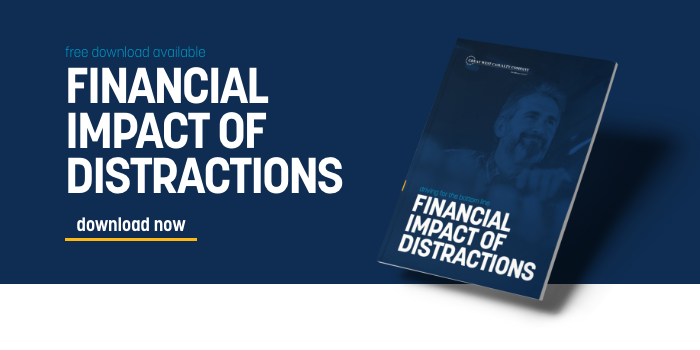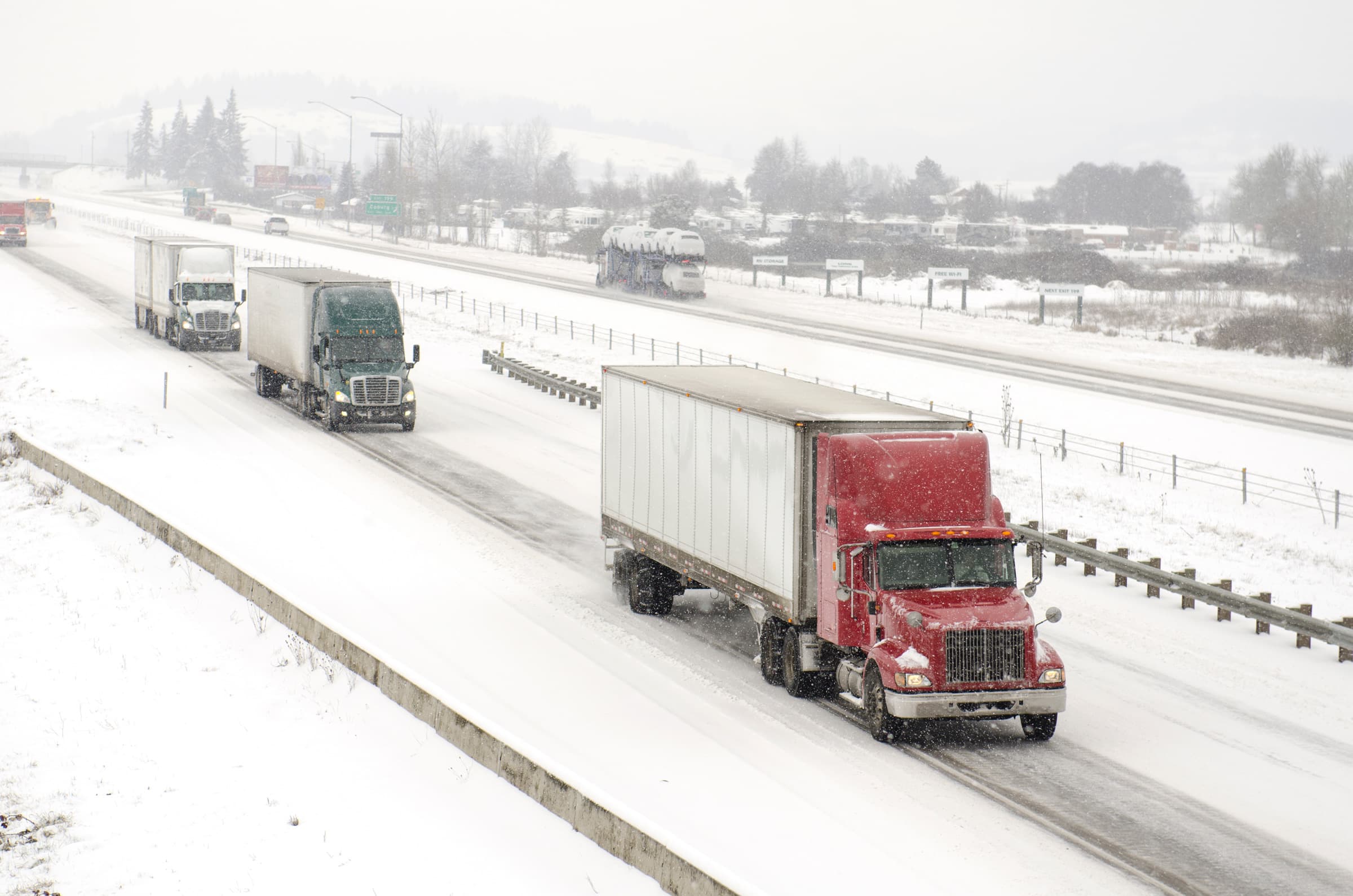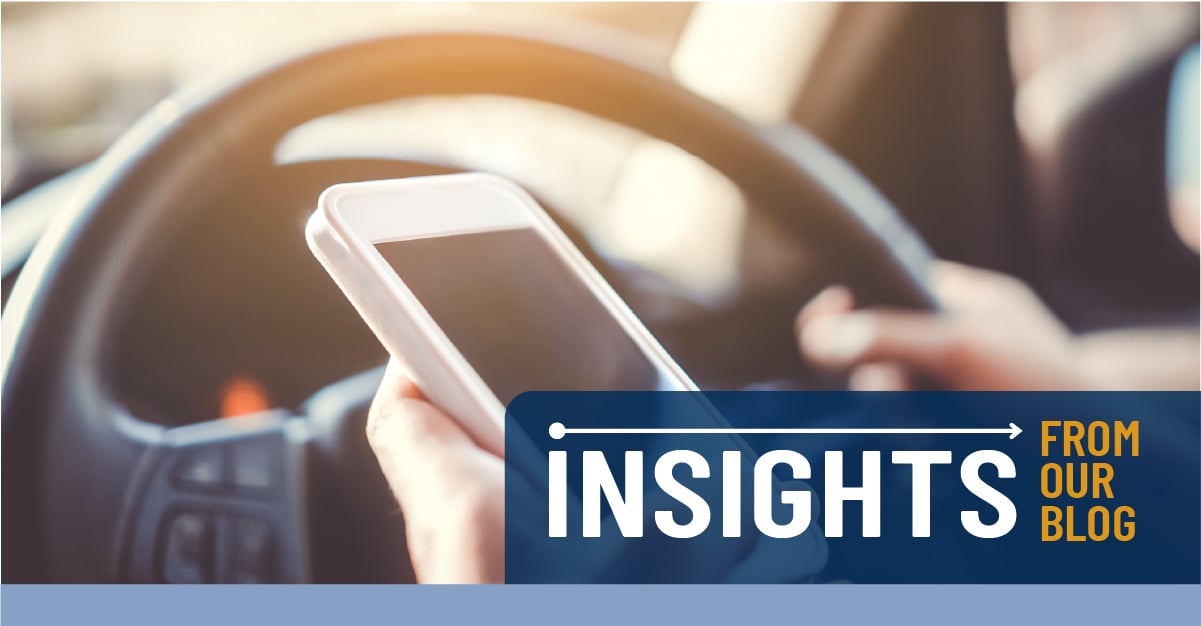What Can You Do to Prevent Distracted Driving?

Distracted driving is any activity (including fatigue and illness) that diverts your attention away from driving. Drivers must devote their full attention to driving. Any non-driving activity is a potential distraction and increases your risk of crashing. Read the information below on the types of distractions and defense techniques, then ask yourself if there are ways you can improve.
RECOGNIZE THE HAZARDS
 MENTAL (COGNITIVE) DISTRACTIONS
MENTAL (COGNITIVE) DISTRACTIONS
Mental distractions occur when a driver’s mind is focused on something besides driving. Examples include daydreaming, talking to a passenger or on a phone, fatigue, or being preoccupied with a family issue.
 VISUAL DISTRACTIONS
VISUAL DISTRACTIONS
Visual distractions can be anything viewed inside or outside the cab that diverts a driver’s focus away from driving. Examples include looking away too long to read a billboard or road sign, gawking at a passing crash scene, or reading a text on your phone.
 MANUAL DISTRACTIONS
MANUAL DISTRACTIONS
Manual distractions are a driver using one or both hands to perform a secondary activity while driving, such as texting, eating, drinking, adjusting the radio, reading a map, or reaching for an item dropped on the floor.
KNOW THE DEFENSE
 PUT AWAY MOBILE DEVICES
PUT AWAY MOBILE DEVICES
Before placing the vehicle in motion, silence mobile devices and keep them out of sight. Arrange a time to call your dispatcher and family each day and let messages go to voicemail. Call back when safely parked.
 AVOID EATING AND DRINKING WHILE DRIVING
AVOID EATING AND DRINKING WHILE DRIVING
Eat and drink during breaks, not while driving. Schedule your trip accordingly, in shorter segments, so that you are not distracted by thirst or hunger.
 RESOLVE ISSUES BEFORE GETTING BEHIND THE WHEEL
RESOLVE ISSUES BEFORE GETTING BEHIND THE WHEEL
Do not brood on issues while driving. Resolve problems before leaving or pull over in a safe place to address the issue so you can focus your full attention on driving.
 BE ATTENTIVE TO THE ROAD AHEAD
BE ATTENTIVE TO THE ROAD AHEAD
If you have to look away from the road ahead, make it a quick glance, then return your focus to the road ahead. Avoiding distractions allows you to identify hazards faster, react more quickly, and provides more time to stop the truck safely.
 AVOID FATIGUE
AVOID FATIGUE
Get plenty of rest and avoid heavy meals before driving. Do not take medications that cause drowsiness before driving. If feeling ill or fatigued, pull over in a safe place to recover.
Note: These lists are not intended to be all-inclusive.
The information in this article is provided as a courtesy of Great West Casualty Company and is part of the Value-Driven® Company program. Value-Driven Company was created to help educate and inform insureds so they can make better decisions, build a culture that values safety, and manage risk more effectively. To see what additional resources Great West Casualty Company can provide for its insureds, please contact your safety representative, or click below to find an agent.
© Great West Casualty Company 2019. The material in this publication is the property of Great West Casualty Company unless otherwise noted and may not be reproduced without its written consent by any person other than a current insured of Great West Casualty Company for business purposes. Insured should attribute use as follows: “© Great West Casualty Company 2019. Used with permission by Great West Casualty Company.”
This material is intended to be a broad overview of the subject matter and is provided for informational purposes only. Great West Casualty Company does not provide legal advice to its insureds, nor does it advise insureds on employment-related issues. Therefore, the subject matter is not intended to serve as legal or employment advice for any issue(s) that may arise in the operations of its insureds. Legal advice should always be sought from the insured’s legal counsel. Great West Casualty Company shall have neither liability nor responsibility to any person or entity with respect to any loss, action, or inaction alleged to be caused directly or indirectly as a result of the information contained herein.





